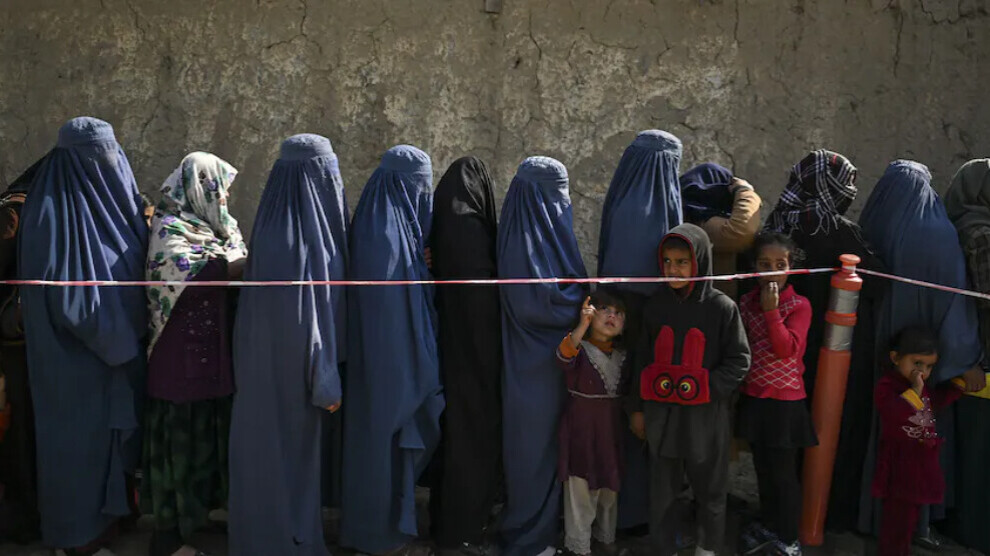Report calls for Taliban’s treatment of women and girls as a crime against humanity
Since the Taliban’s takeover in August 2021, women have been excluded from political roles, most jobs in the public sector and from education beyond primary school.
Since the Taliban’s takeover in August 2021, women have been excluded from political roles, most jobs in the public sector and from education beyond primary school.

The Taliban’s severe restrictions and unlawful crackdown on women and girls’ rights should be investigated as possible crimes under international law, including the crime against humanity of gender persecution, Amnesty International and the International Commission of Jurists said today in a new joint report.
The report, ‘The Taliban’s war on women: The crime against humanity of gender persecution in Afghanistan’, presents a detailed legal analysis of how the Taliban’s draconian restrictions on the rights of Afghanistan’s women and girls, together with the use of imprisonment, enforced disappearance, torture and other ill-treatment, could amount to the crime against humanity of gender persecution under Article 7(1)(h) of the Rome Statute of the International Criminal Court (ICC).
Amnesty International and the International Commission of Jurists consider that the prosecutors of the International Criminal Court should include the crime against humanity of gender persecution in their ongoing investigation into the situation in Afghanistan. The organizations are also calling on other states to exercise universal jurisdiction or other lawful means to bring to justice Taliban members suspected of responsibility for crimes under international law.
“The Taliban’s campaign of gender persecution is of such magnitude, gravity and systematic nature, that cumulatively the acts and policies form a system of repression which aims to subjugate and marginalize women and girls across the country. Our report indicates that this meets all the five criteria to qualify as a crime against humanity of gender persecution,” said Santiago A. Canton, Secretary General of the International Commission of Jurists.
“Since their take over, the Taliban has imposed draconian restrictions on the rights of Afghanistan’s women and girls. Let there be no doubt: this is a war against women – banned from public life; prevented from accessing education; prohibited from working; barred from moving freely; imprisoned, disappeared and tortured, including for speaking against these policies and resisting the repression. These are international crimes. They are organized, widespread, systematic,” said Agnès Callamard, Secretary General at Amnesty International.
The report covers the period from August 2021 to January 2023 and bases its analysis on a growing body of evidence collected by credible sources, including Amnesty International’s 2022 report Death in Slow Motion, civil society organizations and UN authorities. It also provides a legal assessment of why women and girls fleeing persecution in Afghanistan should be presumptively considered refugees in need of international protection. It complements the work of UN experts and women’s rights groups to lay the foundation for the robust response needed to ensure justice, accountability and reparation for the crimes against humanity of gender persecution.